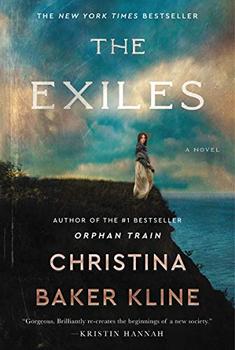Summary | Excerpt | Reviews | Beyond the book | Read-Alikes | Genres & Themes | Author Bio

The Puzzle of Polynesia
by Christina ThompsonA blend of Jared Diamond's Guns, Germs, and Steel and Simon Winchester's Pacific, a thrilling intellectual detective story that looks deep into the past to uncover who first settled the islands of the remote Pacific, where they came from, how they got there, and how we know.
For more than a millennium, Polynesians have occupied the remotest islands in the Pacific Ocean, a vast triangle stretching from Hawaii to New Zealand to Easter Island. Until the arrival of European explorers they were the only people to have ever lived there. Both the most closely related and the most widely dispersed people in the world before the era of mass migration, Polynesians can trace their roots to a group of epic voyagers who ventured out into the unknown in one of the greatest adventures in human history.
How did the earliest Polynesians find and colonize these far-flung islands? How did a people without writing or metal tools conquer the largest ocean in the world? This conundrum, which came to be known as the Problem of Polynesian Origins, emerged in the eighteenth century as one of the great geographical mysteries of mankind.
For Christina Thompson, this mystery is personal: her Maori husband and their sons descend directly from these ancient navigators. In Sea People, Thompson explores the fascinating story of these ancestors, as well as those of the many sailors, linguists, archaeologists, folklorists, biologists, and geographers who have puzzled over this history for three hundred years. A masterful mix of history, geography, anthropology, and the science of navigation, Sea People combines the thrill of exploration with the drama of discovery in a vivid tour of one of the most captivating regions in the world.
Sea People includes an 8-page photo insert, illustrations throughout, and 2 endpaper maps.
Unfortunately, even centuries of research aren't enough to come to a final conclusion regarding the origins of the first Polynesians. Thompson presents many of the pieces of this historical puzzle, but there are still essential parts missing. Nevertheless, Sea People: The Puzzle of Polynesia presents a colorful and thorough picture of a Polynesian culture that is today returning to its roots by reviving ancient practices and traditions, such as wayfinding...continued
Full Review
 (750 words)
(750 words)
(Reviewed by Jordan Lynch).
 Although Sea People is largely written as a history focusing on Polynesia and its earliest inhabitants, it also introduces readers to the islands as a whole: the culture of the Polynesian people, the botany and wildlife of the many islands and the adventurous spirit of a people who loved exploration. This adventurous spirit, however, was lost during the Long Pause, a period of almost two millennia during which voyaging out and settling new Polynesian islands was halted for reasons still unknown. It wasn't until the 1960s that a group of Hawaiians began to dream of returning to their ancestral legacy of voyaging, and the Polynesian history of exploration was revived. One of the men who was integral to rebuilding this legacy was Nainoa ...
Although Sea People is largely written as a history focusing on Polynesia and its earliest inhabitants, it also introduces readers to the islands as a whole: the culture of the Polynesian people, the botany and wildlife of the many islands and the adventurous spirit of a people who loved exploration. This adventurous spirit, however, was lost during the Long Pause, a period of almost two millennia during which voyaging out and settling new Polynesian islands was halted for reasons still unknown. It wasn't until the 1960s that a group of Hawaiians began to dream of returning to their ancestral legacy of voyaging, and the Polynesian history of exploration was revived. One of the men who was integral to rebuilding this legacy was Nainoa ...

If you liked Sea People, try these:

by Hampton Sides
Published 2025
From New York Times bestselling author Hampton Sides, an epic account of the most momentous voyage of the Age of Exploration, which culminated in Captain James Cook's death in Hawaii, and left a complex and controversial legacy still debated to this day

by Christina Baker Kline
Published 2021
The author of the #1 New York Times bestseller Orphan Train returns with an ambitious, emotionally resonant historical novel that captures the hardship, oppression, opportunity and hope of a trio of women's lives - two English convicts and an orphaned Aboriginal girl - in nineteenth-century Australia.